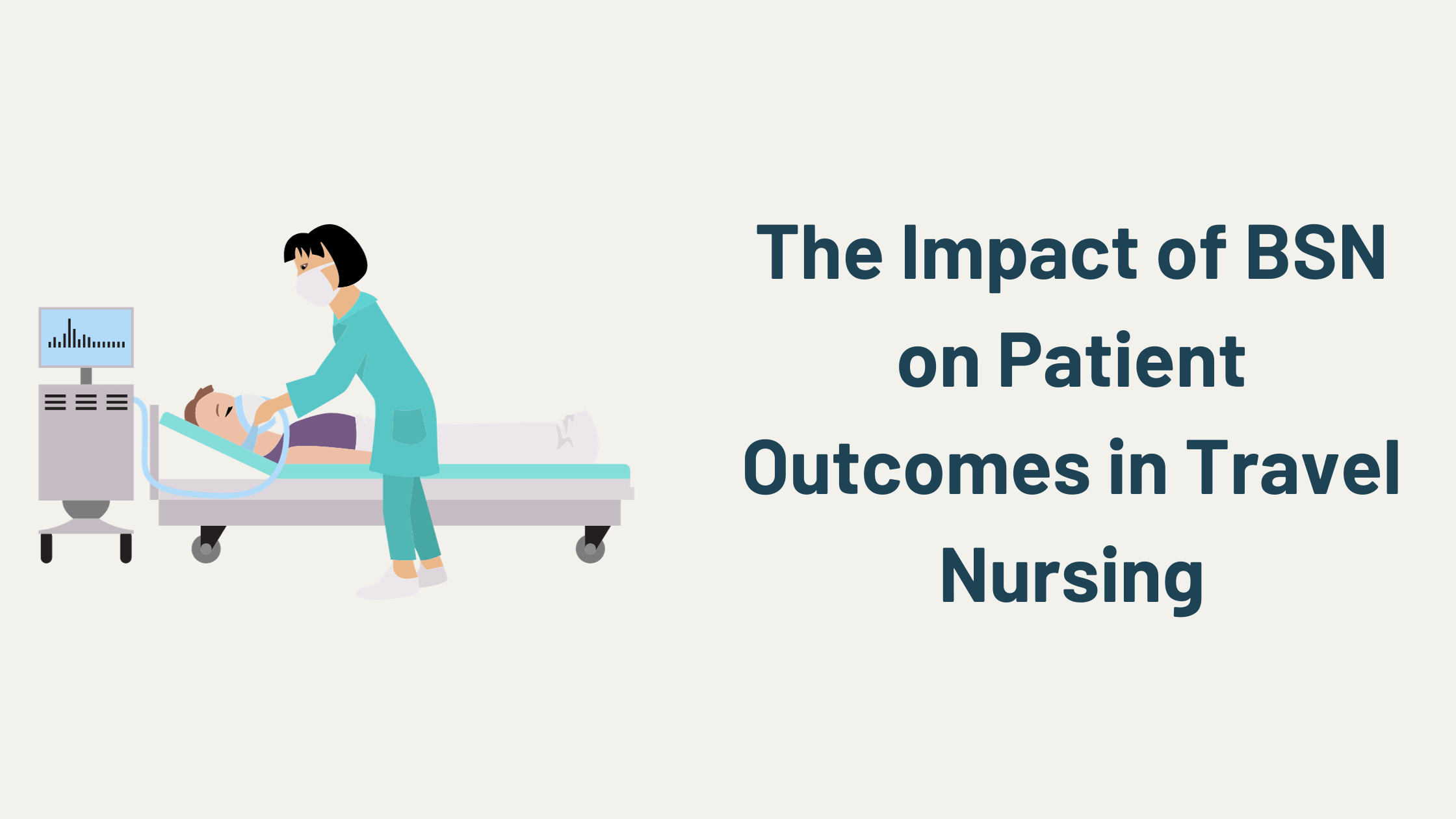
The Impact of BSN on Patient Outcomes in Travel Nursing
In the field of nursing, constant demand prevails; quality care in hospitals is a recognized necessity, dependent on the qualifications of nurses. In this context, travel nursing has emerged as a dynamic career path, offering nurses an opportunity to explore new environments and gain diverse clinical experiences. One key factor that significantly affects the quality of care provided by travel nurses is their educational background, particularly with a Bachelor of Science in Nursing (BSN) degree.
The Growing Emphasis on BSN
The healthcare industry has increasingly acknowledged the significance of a highly educated nursing workforce in delivering quality patient care; increasingly, nurses are opting for BSN programs to expand their knowledge. BSN education encompasses a broader range of subjects, including leadership, research and community health in addition to the core nursing curriculum. BSN-educated nurses possess a deeper understanding of patient care, evidence-based practices and critical thinking skills.
Travel Nursing and the BSN Advantage
When a BSN-educated nurse determines to pursue a career as a travel nurse, they maintain a favorable position; nurses with BSN degrees possess a unique skill set that can positively impact patient outcomes:
- Clinical competence: BSN programs typically provide more extensive clinical training, enabling nurses to better assess and manage complex medical conditions – this competence is invaluable when travel nurses work in diverse healthcare settings.
- Critical thinking: BSN-educated nurses are trained to think critically, making them adept at problem-solving and decision-making – in fast-paced travel nursing assignments, this is a vital asset.
- Patient education: BSN-educated nurses are equipped to educate patients and their families about their health conditions, treatment options and preventive measures, enhancing patient outcomes through better self-care.
Positive Impact on Patient Outcomes
Research has demonstrated that BSN-prepared nurses have a concrete impact on patient outcomes. For instance, a study published in the Journal of Nursing Administration revealed that hospitals with a higher number of BSN-educated nurses had lower mortality rates and fewer patient complications; these findings underscore the correlation between BSN education and improved patient care. When BSN-educated travel nurses embark on new assignments, they often face distinct challenges, such as adapting to different healthcare systems and electronic health records. A solid educational foundation can facilitate the resolution of these challenges.
Concluding Remarks
The impact of BSN on patient outcomes in travel nursing is evident: BSN-educated travel nurses bring a level of expertise and competence that positively influences the quality of care they provide. Their capacity for critical thinking, remaining current with evidence-based practices and educating patients sets them apart in the dynamic world of travel nursing.






